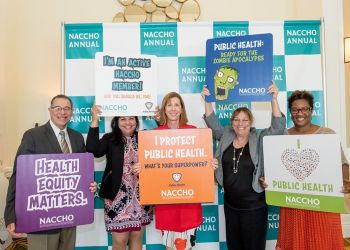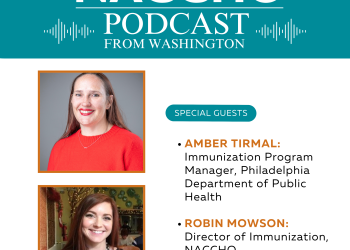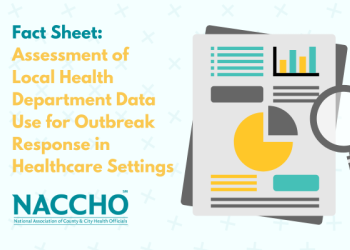Washington, DC, January 30, 2024 - Today, the Centers for Disease Control and Prevention (CDC) released its annual surveillance report (2022 STI Surveillance Report), underscoring the critical need to prioritize testing and prevention efforts to reverse the sexually transmitted infection (STI) epidemic.
According to the report, in 2022, over 2.5 million cases of syphilis, gonorrhea, and chlamydia were reported in the United States. That includes 207,255 cases of syphilis (all stages and congenital syphilis) which represents an 80 percent increase since 2018. Notably, 3,755 congenital syphilis cases were reported, representing a 31% increase from 2021 to 2022, a 183% increase of congenital syphilis since 2018, and an alarming 937% increase in the last 10 years. Congenital syphilis poses a significant threat to the health of babies.
“The 2022 STI Surveillance report underscores the severity of the ongoing surge in syphilis and STI cases, presenting a critical public health concern,” said Lori Tremmel Freeman, National Association of County and City Health Officials (NACCHO) CEO. “With an 80% increase of syphilis since 2018, the STI epidemic continues to escalate, impacting the lives of millions of people and placing many more—including babies—at risk. An immediate coordinated response is needed that involves pushing for more testing, prioritizing immediate treatment, and forming solid community partnerships to ensure accessibility. Focusing on these efforts is critical to minimizing the spread and impact of this disturbing trend.”
While the syphilis epidemic impacts nearly every community nationwide, some racial and ethnic groups bear the brunt, due to longstanding social inequities that often lead to health disparities. Despite comprising 13% of the U.S. population, people who are Black represented nearly 32% of all primary and secondary syphilis cases and experienced about 30% of congenital syphilis cases in 2022. For every 155 American Indian and Alaska Native births in 2022, there was one congenital syphilis case.
Addressing the epidemic involves everyone from healthcare professionals to the public and tailored strategies are needed to reverse the rising trend of STI cases. Local health departments are urged to identify counties in their state with high rates of syphilis and notify local healthcare providers to insist on more testing and coordinated treatment. They should also collaborate with community programs to address structural barriers to syphilis care and make testing and treatment more accessible for those having trouble receiving it. To make treatment more accessible, local health departments and all healthcare providers should prioritize rapid testing for any individual that is being seen during pregnancy and provide immediate treatment for those who tested positive. This may require local health departments setting up injectable treatment delivery programs. Additionally, rapid syphilis testing and treatment, especially during pregnancy, should be encouraged in all emergency departments, syringe service programs, prisons/jails, and maternal and child health programs. This immediate start to treatment should be a top priority if the patient faces obstacles for ongoing care. People who are sexually active are encouraged to consider what safer sex options are right for them, discuss STIs with their partner, talk to their healthcare provider about how to prevent syphilis, and get tested.
“There are no shortcuts, and we have to meet people where they are,” said Dr. Laura Bachmann, acting Division of STD Prevention Director, CDC. “Some people face tremendous barriers to STI prevention and health services. So, the most important work is often outside the clinic, whether it be reaching out to communities with testing, interviewing patients to offer services to their partners, or delivering treatment directly to someone.”
While the work and decisions made at the federal level have a large impact on guidance and programmatic funding, reversing this epidemic requires increased coordination and commitments to addressing the problem – universities and private industry, healthcare providers and health departments, communities and community leaders, federal, state, and local governments, and CDC all play a key role. To support these efforts, NACCHO is currently supporting local and tribal health department projects to partner with local pharmacies and jails to expand STI testing and treatment, do community engagement to develop syphilis reduction action plans, and conduct syphilis awareness media campaigns. Additionally, NACCHO continues to work for increased STI funding and to bring awareness to the impact of continued drug shortages on treating syphilis in pregnant people. NACCHO is also engaged with the Federal Syphilis Taskforce and is working with partners to convene a separate taskforce to address congenital syphilis disparities among American Indian and Alaska Native Communities.
About NACCHO
The National Association of County and City Health Officials (NACCHO), the voice of the country’s over 3,300 local health departments, supports local health departments’ initiatives to promote healthy living in the communities they serve. NACCHO provides cutting-edge, skill-building, professional resources, and programs crafted to optimize health equity, and support effective local public health practice and systems. NACCHO is committed to continuing to make positive strides in the advancement of public health and supports like-minded opportunities for partnerships. For more information, visit the NACCHO website at www.naccho.org.





